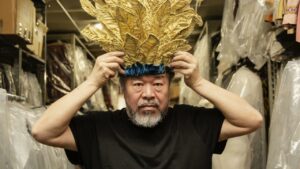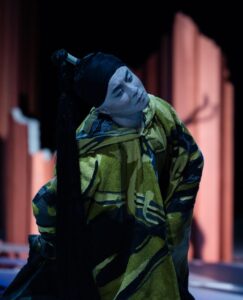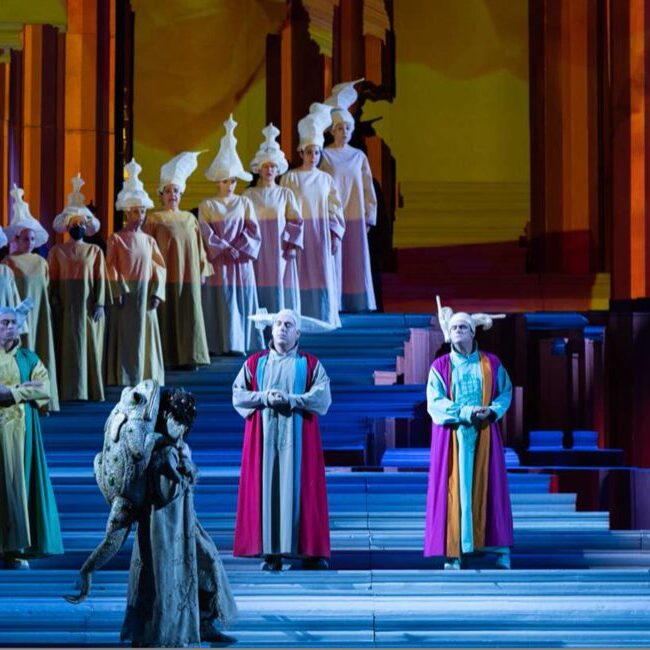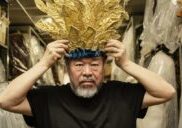
The Chinese contemporary artist in a dialogue with Giacomo Puccini‘s unfinished last work, a behind the scenes and beyond at Teatro Dell´Opera di Roma, are the subjects of this documentary film directed by Maxim Derevianko, based on a story written by Michele Cogo and Maxim Derevianko.
From Ai Weiwei is said to be the most powerful figure in contemporary art and one of the most influential creatives of our time. The artist’s concerns about humanity are diverse and most of them are part of his body of work.
In 2018, Weiwei was invited as artistic director for a new production of Turandot at the Opera di Roma. In his own words: I’m not interested in opera at all, I normally dont listen to music, the projecr is defiant. Ai Weiwei says he likes to do what he is not good at, he likes trouble, he also is a global star.
Rome, March 2020. Rehearsals at the theatre. Also on board is choreographer Chiang Ching, Ai Weiwei´s friend for many years, due to her, he got involved as an extra in Zeffirelli´s Metropolitan Turandot 33 years ago. Challenging and meaningful for them to do Turandot again.
 With his directorial operatic debut at the door, Ai Weiwei realizes opera is quite a struggle for all the elements involved. Being consistent with himself, he uses opera as a backdrop to address many issues that plague mankind. Also whilst relating to the tale about three riddles, an ancient Chinese princess who was victimized by men and wanted to use love as a revenge, and the Persian prince, a freedom fighter inmigrant who lost his power and is trying to re-establish something. A love/ death story with a contemporary interpretation.
With his directorial operatic debut at the door, Ai Weiwei realizes opera is quite a struggle for all the elements involved. Being consistent with himself, he uses opera as a backdrop to address many issues that plague mankind. Also whilst relating to the tale about three riddles, an ancient Chinese princess who was victimized by men and wanted to use love as a revenge, and the Persian prince, a freedom fighter inmigrant who lost his power and is trying to re-establish something. A love/ death story with a contemporary interpretation.
Artist, activist and director, Ai Weiwei as an artist is aware of the responsibility he has with society, finding ways to express what is unfair. The behind the scenes evolution as art director mixes with a few of the artists well known pieces, Human Flow on the topic of migrations premiered at the Venice Fim Festival, Remembering created with 9,000 student backpacks after the Sichuan earthquake in 2008 at the Munich Museum of Art, to mention two. The opera, his new project, refers to his work, life, beliefs defending peace, and the freedom of speech, the medium is new to him but the concept of his art work relates to Turandot.
For the mise en scene of the opera, and to represent Puccini´s imagination and vision, Ai Weiwei puts his understanding and interpretation in present times. He finds inspiration in his Motherland Umbrella Movement, where umbrellas were like shieds against police attacks. His relationship with the Costume Director finds inspiration in nature, a moth/butterfly and a frog for the main characters, a global map at the stage instead of Chinese style props, visual support such as projections, videos, and Michael Jackson´s Moonwalkers with young dancers on stage. His Turandot focus on human issues (refugees, Covid and protests/war), the human race issue.
Among all the fascinating and well-designed characters in the opera, Ai Weiwei makes an addition, a Chinese opera actor, someone to play with his body gestures and express inner feelings with his movement, since the other performers use their voices.
The film proposes a fourth riddle… when Puccini stops writing. Since Turandot is the last music he wrote, did Puccini had troubles or doubts about changing the merciless character into love? How would Puccini have resolved the music to finish his opera?

The film shows the Opera production suddenly is interrupted because of the Coronavirus pandemic, closing down a theatre that has never been closed in 140 years of its history. In this moment, world wide lockdown resonates to me, during that strange period of time we all lived, Opera was a rare highlight and a dear companion thanks to the generosity of the Metropolitan Opera House providing free nightly streams of encore performances from its Met Live in HD series.
In the words of Alejo Pérez, then the conductor of Ai Weiwei´s Turandot, “Art is basic a human necesity, it is for reachng out the other human being”. After a time in a bubble, in February 2022. Teatro Dell´Opera di Roma reopens and in a press conference announces its activities, for the coming Ai Weiwei´s Turandot a new musical director, Ukranian Oksana Lyniv, a musician inmersed in the 20th Century music in correspondance with its artistic director, inmersed in 20th Century human issues. There is an emotional moment on February 24th 2022 when the Russian-Ukranian conflict beguins.
The engaging story and film end after the opening night and Bravos at the Opera di Roma leaving among us a message of teamwork, dedication and love. In words of Ai Weiwei Art competes with reality and Art will have the last word.
Vanish, o night! Set, you stars! At dawn I will win! A new day is coming, there is hope.
|

